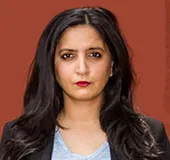
On May 26, Bashar al-Assad was re-elected as Syria’s president for seven more years and won with a whopping 95.1 percent of the votes, a victory margin that has eluded leaders of democratic countries across the world. His competitors, Abdullah Salloum Abdullah and Mahmoud Ahmed Mari, received just 1.5 percent and 3.3 percent of the vote share.
The 55-year-old ophthalmologist has been in power for 21 years since he took over from his father Hafez al-Assad. But half of his tenure has been a horrifying tale of death and displacement. As he fought various opposition groups for a decade in a bloody civil war, he was accused of deliberately destroying cities, imprisoning and executing opposition members, and forcing millions to run for safety elsewhere. Hundreds of thousands died, more than 5.5. million were turned into refugees, and 6.2 million were displaced internally.
In 2011, the initial protests against the Syrian government were to seek political and economic reforms. Soon, however, the organised Islamists groups took over, and as the more extremist outfits hijacked the Syrian chapter of the Arab uprising, there was little hope left for the people who began the Syrian revolution. Eleven years later, there is still no hope for democracy, and no one believes the claim of the Assad government that his electoral victory displays the will of the Syrian people.
In 2011, the initial protests against the Syrian government were to seek political and economic reforms. Soon, however, the organised Islamists groups took over, and as the more extremist outfits hijacked the Syrian chapter of the Arab uprising, there was little hope left for the people who began the Syrian revolution
The Syrian opposition described the election as a farce and unrepresentative of the Syrian people. “It's a decision by the government, aided by Russia and Iran, to kill the political process,” said Yahya al -Aridi, a Turkey-based opposition leader. “It's a continuation of tyranny.”
Mr Aridi is referring to the political process mediated by the United Nations under which a constitutional committee has been formed. It intends to bring the Syrian government and opposition members together to agree to a new constitution and then conduct elections with the representation of credible opposition members.
The international community, too, dismissed the elections as “neither free nor fair.” A joint statement by the United States, the United Kingdom, Germany, and France, chastised the Syrian government for carrying out the exercise without UN supervision and unequivocally rejected them as illegitimate. “We, the Foreign Ministers of France, Germany, Italy, the United Kingdom, and the United States of America wish to make clear that Syria’s May 26 presidential election will neither be free nor fair,” the statement read. “We denounce the Assad regime’s decision to hold an election outside of the framework described in UN Security Council Resolution 2254 and we support the voices of all Syrians, including civil society organisations and the Syrian opposition, who have condemned the electoral process as illegitimate.”
“For an election to be credible, all Syrians should be allowed to participate, including internally displaced Syrians, refugees, and members of the diaspora, in a safe and neutral environment,” added the statement. Syrians in the rebel-held north-west did not vote and neither could most of the millions of refugees who are living in host countries that do not have a Syrian embassy since they broke ties with Assad.
American experts opined that Assad’s continuation as Syria’s ruler and his audacity to conduct what evidently is a sham election also reflected the failure of American policy in the region. In 2015, Russia intervened militarily and saved Assad. Burdened by the fiascos in Afghanistan and Iraq, the US retreated from the Middle East under President Obama, a policy strengthened by his successor, Donald Trump.
American experts opined that Assad’s continuation as Syria’s ruler and his audacity to conduct what evidently is a sham election also reflected the failure of American policy in the region
Others say that while in hindsight, it's easy to blame American policy but the presence of extremists in the Syrian theatre, who some say had deliberately been let loose by the Assad government to infiltrate the movement, blocked the West’s path to impose a no-fly zone as it had done in Libya. Syria has always been a complex question for the West and as American President Joe Biden prioritises the pivot to Asia, the fear is that interest in Syria would decline further.
Bashar al-Assad says he does not care about the West but a collapsed economy and widespread destruction have created pockets of unrest even in the Baath party’s traditional strongholds. Food and fuel prices have skyrocketed, and electricity and employment are in short supply. Now a sham election has weakened the global well-wishers of the Syrian people who were campaigning for lifting American sanctions on Syria’s reconstruction and mitigating the misery of Syrians.
Bashar al-Assad says he does not care about the West but a collapsed economy and widespread destruction have created pockets of unrest even in the Baath party’s traditional strongholds. Food and fuel prices have skyrocketed, and electricity and employment are in short supply. Now a sham election has weakened the global well-wishers of the Syrian people who were campaigning for lifting American sanctions on Syria’s reconstruction and mitigating the misery of Syrians.
The views expressed above belong to the author(s). ORF research and analyses now available on Telegram! Click here to access our curated content — blogs, longforms and interviews.




 PREV
PREV


